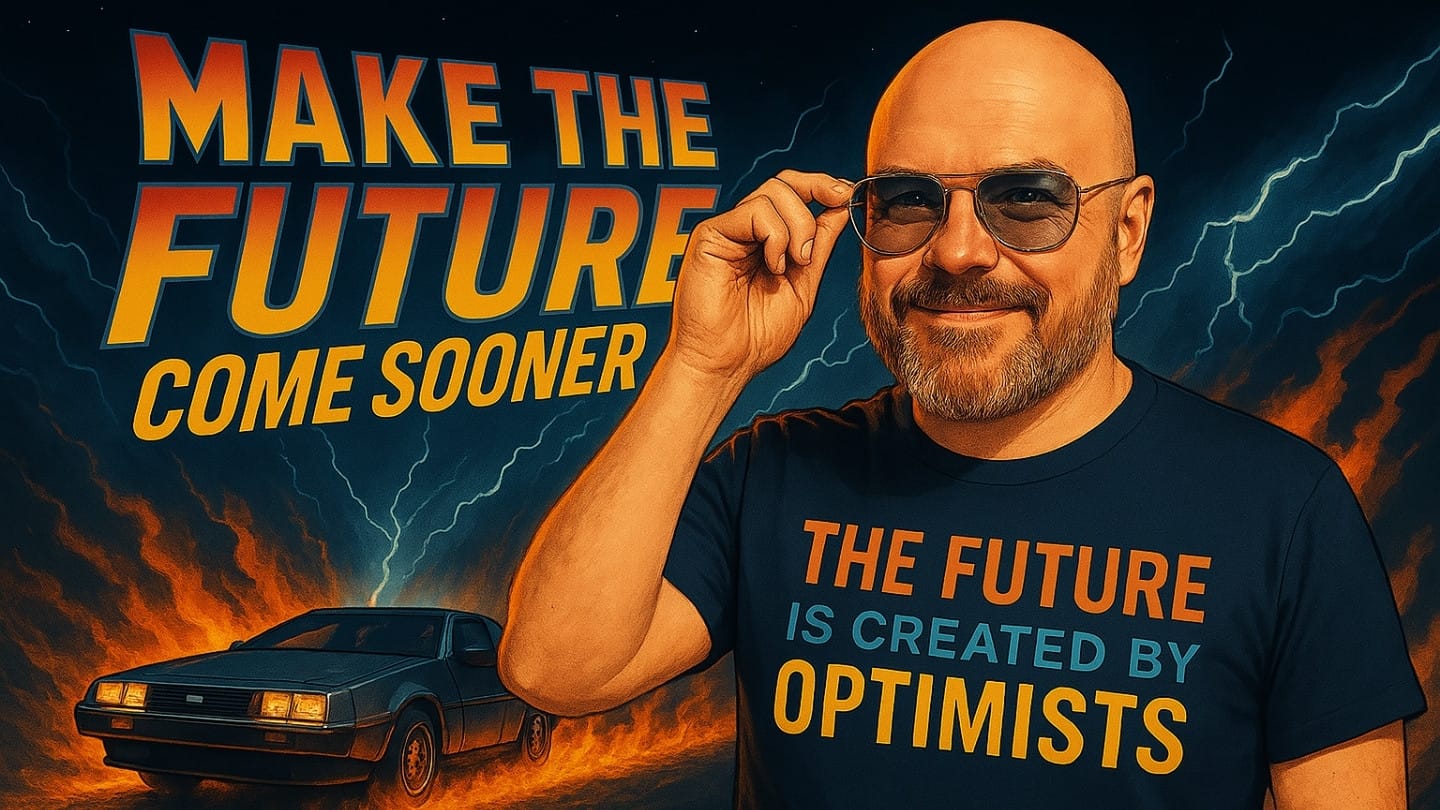
💡 The Case for Fact-based Optimism
"You can not use the media if you want to understand the world," said Hans Rosling. We hope to challenge that statement by giving you a more balanced, fact-based, and optimistic view of the world and the future.
Share this story!
We live in a time of crisis. Migration crisis, political crisis, healthcare crisis, school crisis, crisis in the entire judiciary system, and, of course, climate crisis. All this is happening in the middle of the biggest pandemic in over 50 years, with over a million dead worldwide.
If you visit the largest news sites and quickly summarize the headlines on the front page, there is no other conclusion to be drawn than that the world is about to go down the drain.
If you go to social media, especially Twitter or Facebook, you will probably get this conclusion confirmed. There are problems everywhere. Our whole existence is about to end.
A survey from YouGov confirms that most people have this worldview. Only six percent in the US and four percent in Great Britain believe that the world is getting better - and that was before the pandemic.
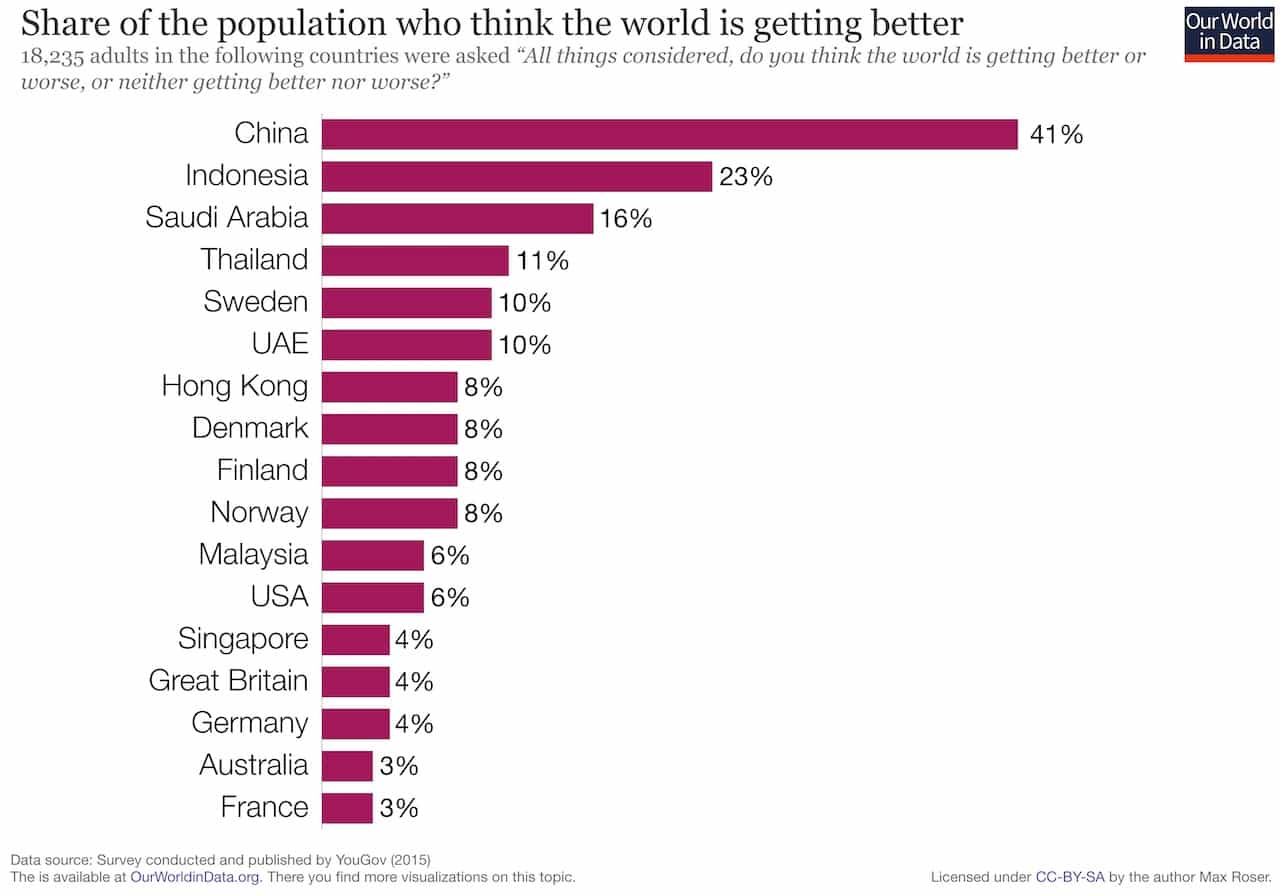
Your worldview is based on media - not facts
Do not all facts tell us that we are on our way down to the abyss?
No, it suggests that most of us have a distorted worldview that is not based on facts.
The Swedish physician, academic, and public speaker Hans Rosling showed this many times in his lectures. With statistics from the UN and the World Bank, he showed that things we took for granted, often pessimistic assumptions, were completely wrong.
In a few decades, virtually every fact of human existence has improved in almost every nation. Extreme poverty has been dramatically reduced, air pollution as well, life expectancy has increased, there are fewer wars, the number of children attending school has increased, there are fewer illiterates than ever, and both child and maternal mortality rates have dropped dramatically. In general, everything we can measure objectively is steadily improving.
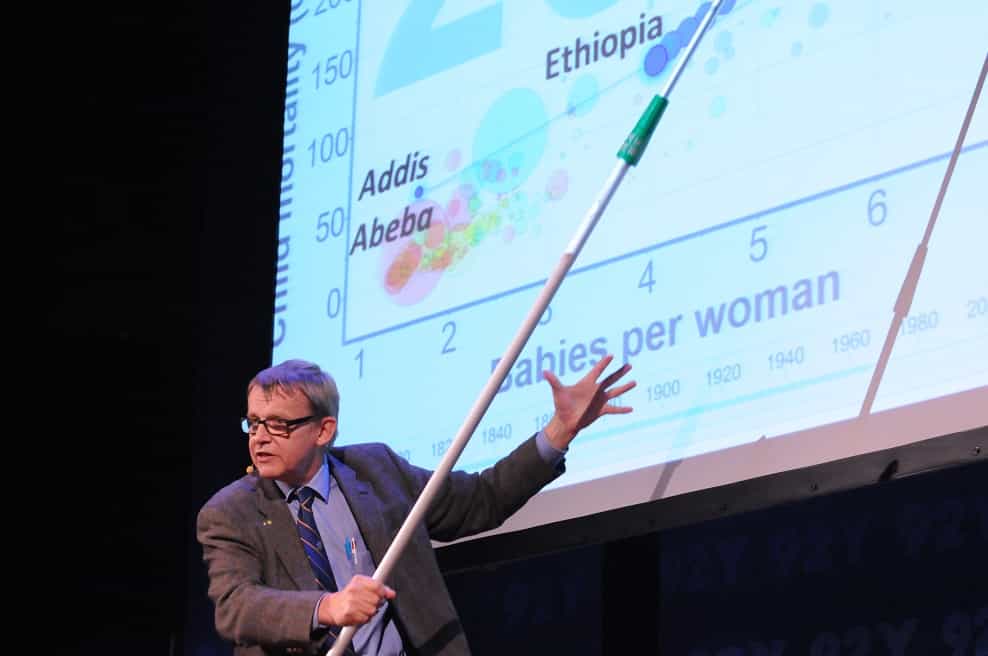
This does not mean that all problems are solved, of course not. There are terrible problems in the world, and more are coming. But overall, in our lifetime, most things have gotten better for most people, including developing countries, the countries that Rosling's Gapminder refer to as level one and two.
But is this not just statistics? Numbers that can be used to say one thing or another? No, as Hans Rosling claimed in a TV interview on Danish television, this is the reality. There is a human being behind every number.
”If it bleeds, It leads”
But the media is our window to the world. They report on reality, right? In the same program, Rosling says, "You can not use the media if you want to understand the world."
One reason for this is the fast pace of news. Therefore, the relatively slow positive development we see in the world is given very little or no space in the traditional media channels. Here the crises and truism "If it bleeds, It leads" prevail.
It is thus the most startling, bloody, and alarmist that is seen in the headlines and attracts the clicks that are the basis for their ad-based business model.
Hardly anyone writes that the world's fires are decreasing, that polio is eradicated in Africa, or that fewer people than ever are dying in natural disasters.
While facts show that so much is getting better in the world, media reporting has become increasingly negative. This is revealed in an analysis of news in 130 countries between 1979 and 2010.
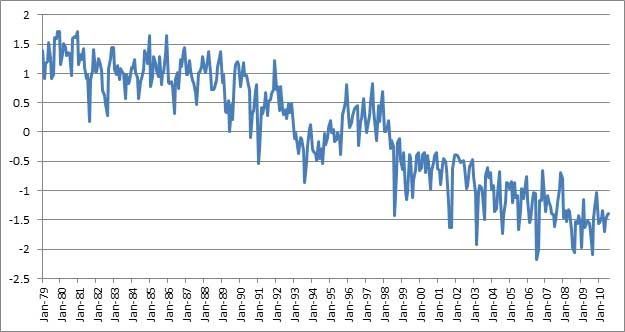
So Rosling was right. By following the media, you do not understand the world. You see the worst in the world. It also leads to an escalated tone where everything is described as crises.
All issues are driven by fear and alarmism, from climate to migration and healthcare. If you are to get through the alarming noise, you have to trump the other crises with an even bigger one.
It also logically follows that no solutions are sufficient; they undermine the crisis itself. If something can be shown to improve, that solutions are in place and work, it is no longer a crisis - and without a crisis, there are no headlines on the front page.
If we look at the facts, the conclusion is as short and concise as Rosling's to the Danish host: "I am right, and you are wrong."
You do not get a fact-based worldview in traditional or social media. You get a distorted picture of a world in constant crisis.
That is why Fact-based Optimism is needed
Our fact-based optimism is based on equal parts of Rosling's facts, that we see a positive development in the world, and that we have greater opportunities than ever to solve our biggest problems thanks to science and open societies.
What we mean by optimism is thus about having a positive view of people and a conviction that we can and should solve the problems we face. That means we can not stop at the problem description; we must focus on opportunities and solutions.
Climate change, artificial intelligence, nuclear war, biological weapons, and, of course, pandemics are just some of the existential risks of our time.
None of these problems will be solved by themselves. Nor is the problem we claim to be at least as big as the others we mentioned: the media's constant crises.
The constant alarms, one-sided reporting of problems, and negative developments in the world scare people and polarize societies. This needs to change.
That's why we are starting Warp News, based on fact-based optimism.
A survey from Ipsos shows that the more factual knowledge the respondents had about the world, the more optimistic they were about the future.
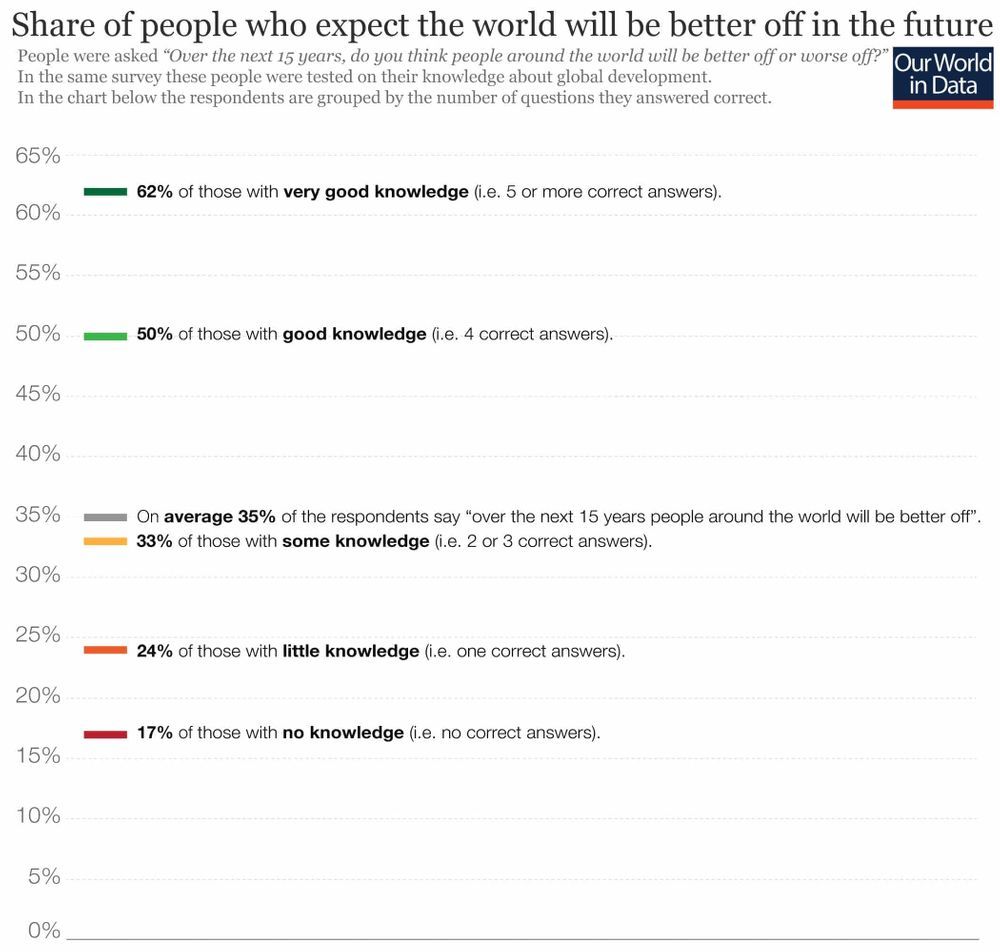
Balance your view of the world - read Warp News
We have long since left a media landscape where there were only one or possibly two channels. Today, the vast majority receive their news from many different sources and largely via social media. Therefore, we recommend no one only read Warp News, but to consume a mix of news and media to get many different perspectives.
News media has a crucial role in democratic societies, and of course, they must report on wars, disasters, crimes, and more. But journalism and news media must develop. It is not reasonable to get a skewed perception of reality via the media.
"You can not use the media if you want to understand the world," said Hans Rosling.
We hope to challenge that statement by giving you a more balanced, fact-based, and optimistic view of the world and the future.
❓ Do you agree with this description and want to support our work? Read more about us and become a Premium Supporter here.
By becoming a premium supporter, you help in the creation and sharing of fact-based optimistic news all over the world.
